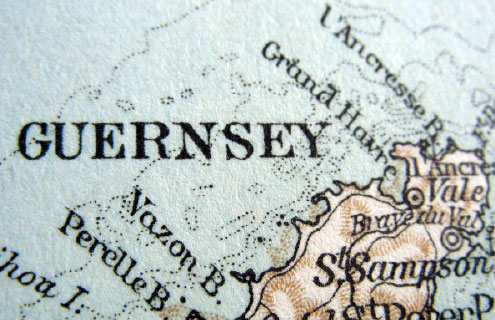While the focus of Guernsey Funds Forum 2014 was on the raising and allocation of funds, the principal question of whether the pursuit of capital was an art or a science provided an intriguing sub-plot
Using interactive voting for the second consecutive year, the Guernsey Funds Forum was opened by asking the 350 delegates present whether they thought the pursuit of capital was an art or a science.
Fifty-nine percent of delegates originally said it was a science, but by the close of the event this had been reversed, with nearly two-thirds of the audience (64 percent) believing the pursuit of capital is an art. This alteration was possibly due to the influence of the two panel sessions on how to raise capital and how to spend it.
Eric Martineau-Fortin of White Star Capital, John Magrath of TwentyFour Asset Management, Christophe de Taurines of Capital and Marketing Group and Ben Edwards of Syntaxis Capital appeared in the first panel session on how to raise capital.
Edwards claimed that the art of raising capital is apparent at the idea stage, while the execution of this is usually carried out in a more scientific way. The remainder of the opening panellists agreed with this mixed view.
In hunting down capital, de Taurines suggested that investing in alternatives is the only way to bridge the funding gap in ageing populations across the globe.
The panel also largely agreed with the 33 percent of the audience’s view that pension funds would be most likely to see the biggest growth in alternative investing over the next five years. The sector is predicted to be worth between £34 and £57 trillion by 2020.
The possibility of Google, Amazon and the like entering the highly regulated world of banking was also raised during the panel. The panellists unanimously said that this would be positive for the industry, giving potential investors, which were previously blocked, new opportunities.
One of the panellists even claimed that this change is certain to happen, and banks simply have to learn to adapt to the new landscape. While it was conceded that there would be implications for financial professionals, it was claimed that these new developments could open up channels to smaller funds.
The event’s second panel debate featured Antonio Buzaneli of Providence Group, Aldo Beolchini of NextEnergy, Ghalib Chaudhuri of Odyssey Capital, Florence Eid-Oakden of Arabia Monitor and Nick Money-Kyrle of Steadfast Capital.
Fiona Le Poidevin, chief executive of Guernsey Finance, the promotional agency for the island’s finance industry, commented: “It was interesting to hear the panellists’ views on the different regions they are operating and investing in including the US, Brazil, the Middle East, India, the Far East, Africa and Germany. Themes that arose included political stability, risk appetite and cultural aspects, while [Beolchini] said the key to success was ensuring you are a specialist in your asset class.”
The audience, voting on the best opportunities for the export of UK innovation, were split, with 33 percent saying the Far East and 33 percent going for the Middle East.
This discussion led Beolchini to claim that the pursuit of capital is mostly an art as, despite constant technological developments, relationships remain at the core of the business.
Le Poidevin continued: “It was surprising to see how the answer to the art or science question varied from start to finish, particularly as the panellists brought different interpretations of how they perceived the pursuit of capital—the science of considered and well-researched investment in asset classes but based on the art of recruiting specialists in their fields and responding to investor demands.”
As a respite from the central question the keynote presentation on frontier markets, by respected economist Jim O’Neill, turned the audience’s attention towards more inflammatory issues.
Le Poidevin commented: “[O’Neill] is a leading voice on the landscape of the global economy so when he says ‘greed and fear are really close cousins’ when it comes to investing, people are going to take notice. It was also interesting to hear his thoughts on global stability and his observation that bad regulation had caused the crisis and yet those regulators were still in place now, while there had been a significant shake-up of the banking world.”
After the second round of votes were tallied it was clear that, whether it was Guernsey Finance’s intention or not, the audience was far more inclined to see the pursuit of capital as an art.
Guernsey facts
As of December 2013, Guernsey was home to 824 funds, 103 of which were approved by the Guernsey Financial Services Commission in 2013. These funds amounted to a total net asset value (NAV) of £266 billion, while the growth in value of private equity funds from December 2008 to December 2013 stood at 124 percent. In addition, the country is Alternative Investment Fund Managers Directive-ready, and is home to more non-UK incorporated entities on the London Stock Exchange than any other jurisdiction globally.



